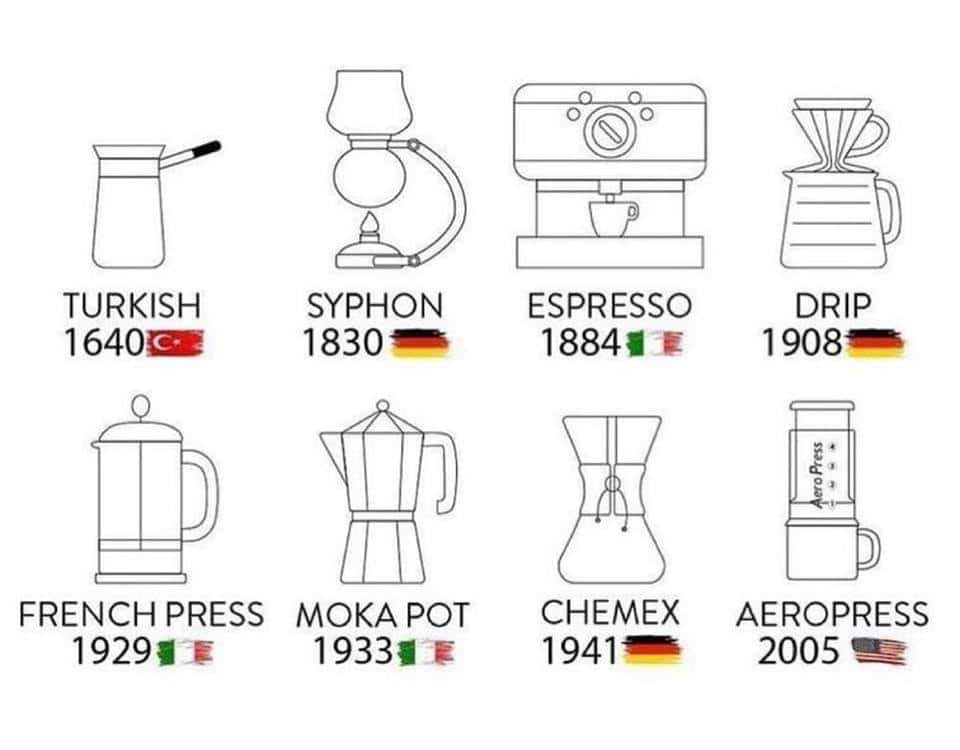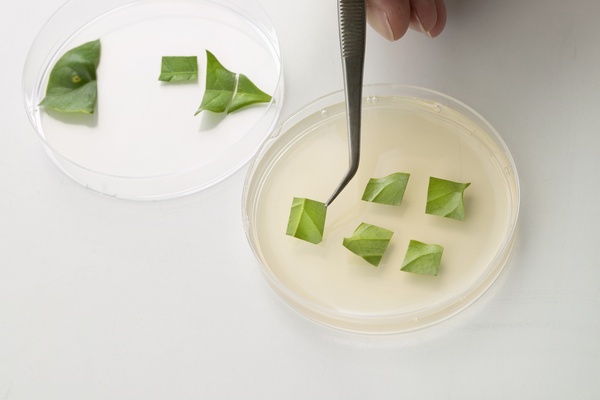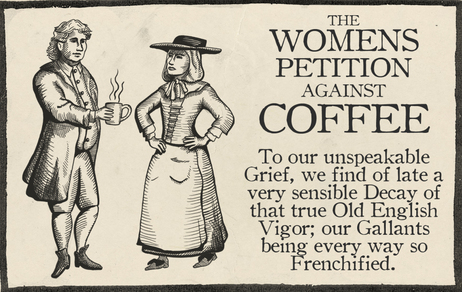
I imagine the siphon is popular with the Steampunk community given instructions such as "when the coffee at the bottom has begun to bubble at approximately the pace and strength of a kitten’s heartbeat", which I wish I had written. Image credit: unknown but if you know its real source, please let me know in a comment.
The beans were another issue. Clearly some people favored one bean over others, that is why Arabica is by far the most popular in the world, but there was no reason for science to optimize it the way wine has been genetically modified over the last millennium.
Science does not always do things because there is a demand, that is the nature of basic research, and in the 1970s coffee got a science boost it didn't need. As documented in the Canadian Institute of Food Science and Technology Journal, P. M. Townsley of the University of British Columbia made artificial coffee using cell cultures.
it was truly academic and, like John Harvey Kellogg (the cereal guy) with his meatless meat in 1896, it went nowhere. Coffee is affordable and growing it keeps a lot of people feeding their families so the free market was not embracing an alternative that would need a billion dollar investment and 10 years of FDA telling you what color to use on the label just for the opportunity to sell far less coffee. Regardless, work continued and in 1995 Kraft patented their tissue culture methodology for making coffee.
It still went nowhere. The same market obstacles exist and still do. A team in Finland believes they have solved the market viability problem. That's right, Finland. One of the places you associate the least with growing coffee believes they are about to do the most for it.
The process involves cell cultures floating in bioreactors filled with "nutrient medium" that then grow into true biomass. Once they had their artificial coffee material, they had to figure out how to brew it. And they did succeed, at least according to their own in-house taste test panel. As anyone who has tasted artificial grape flavor can tell you, it is easy to recognize 'that is supposed to be grape' even if it does not really taste like grape whereas banana flavor is basically one compound so much easier to synthesize.
Coffee is in that group with grape. It is chemically complex. So the first step would be getting an investor to agree they make good coffee and that there is so much consumer demand for coffee not grown naturally in Colombia that they would rush to an alternative. A whole lot of vegans won't even consume plant-based meat substitutes because it is science, and there is no cultural group that opposes coffee, so the market may be a challenge.(1)

Credit: VTT laboratory
There are three obvious cultural issues.
1. Despite what the Finns contend, coffee production is not really a problem. Virtual water (yes, that is a thing) advocates have tried to claim it but they ignore that just because deserts don't have water does not mean it is unsustainable in areas where rain is plentiful.
2. Agriculture is a key source of income for many people so saying that poor people need to do less of it is not going to resonate with those who actually care about the poor. Only companies selling expensive alternatives to the wealthy benefit.
That is what regular coffee of today would become. Like with all other agriculture, the minute the old way becomes expensive wealthy elites will flock to it, just as they have organic food and ancient beliefs about supplements made from endangered species. If someone can show rich people will buy something, a company will be interested, but that means companies will be flocking to the natural coffee producers this seeks to replace. Not this technology.
3. Regulatory approval is a big challenge. A Novel Food designation in Europe is quite a hurdle. This is a culture that believes genetically modified plants using the Mutagenesis process can be certified "organic" while GMOs and CRISPR must be banned. The US FDA remains trapped in a 1980s regulatory system and not very nimble when it comes to food. It took 19 years for approval of a gene from a Chinook salmon to be allowed into an Atlantic salmon so it could grow faster.
The strategy they would have to adopt is parsing the regulations the way that meat alternatives have done. Beyond Meat touts that while they "alter the structure" of plants they don't use genetic modification (they couldn't, there is no genetically modified pea) while Impossible Foods argued their soy leghemoglobin (heme) is just a color additive. Both escaped being considered "novel chemicals" and the decades of FDA paperwork that would mean.(2)
Knowing all that, the authors still believe they could have something approved in four or five years. I'd certainly like to give it a taste.
NOTES:
(1) Though efforts to oppose it came down along political lines, much the way vaccines (MMR for the left wing, COVID-19 for the right), GMOs (left), climate change (right) and nuclear science (left) are political rather than evidence-based. In this case, Big Tea said coffee would turn British men into the French.

(2) The fringe lawyer-run group Center for Food Safety is filing lawsuits anyway. Center for Food Safety lawyers are ironically called "consumer advocates" by some journalists despite only advocating for lucrative settlements to pay themselves.




Comments